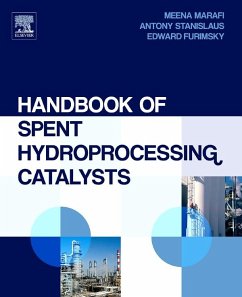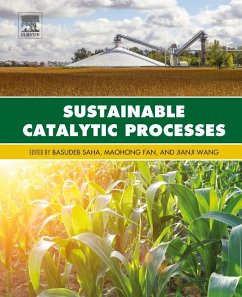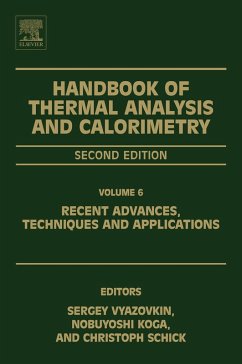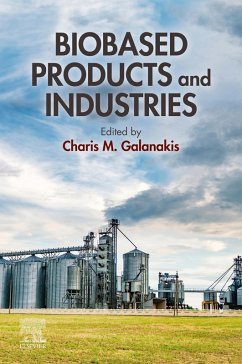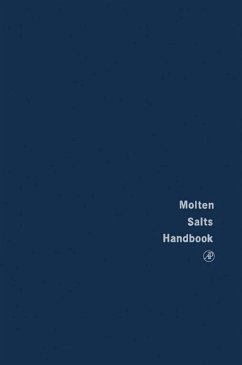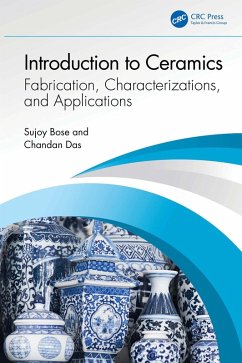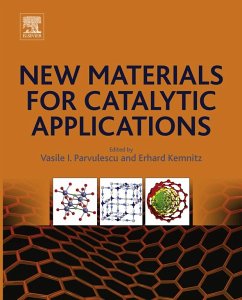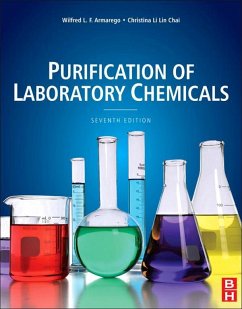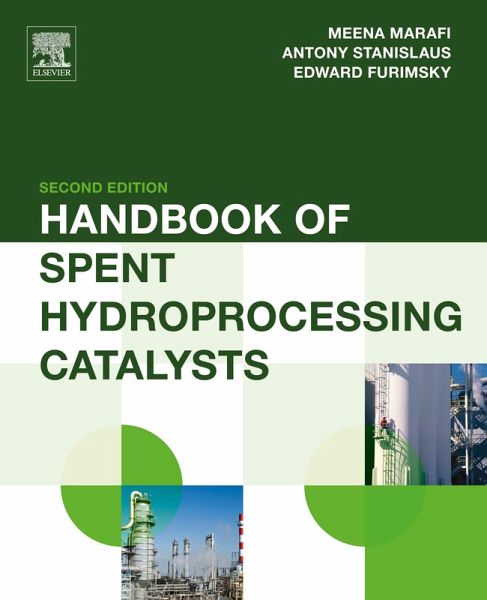
Handbook of Spent Hydroprocessing Catalysts (eBook, ePUB)
Versandkostenfrei!
Sofort per Download lieferbar
120,95 €
inkl. MwSt.
Weitere Ausgaben:

PAYBACK Punkte
60 °P sammeln!
Handbook of Spent Hydroprocessing Catalysts, Second Edition, covers all aspects of spent hydroprocessing catalysts, both regenerable and non-regenerable. It contains detailed information on hazardous characteristics of spent and regenerated catalysts. The information forms a basis for determining processing options to make decisions on whether spent catalysts can be either reused on refinery site after regeneration or used as the source of new materials. For non-regenerable spent catalysts, attention is paid to safety and ecological implications of utilizing landfill and other waste handling a...
Handbook of Spent Hydroprocessing Catalysts, Second Edition, covers all aspects of spent hydroprocessing catalysts, both regenerable and non-regenerable. It contains detailed information on hazardous characteristics of spent and regenerated catalysts. The information forms a basis for determining processing options to make decisions on whether spent catalysts can be either reused on refinery site after regeneration or used as the source of new materials. For non-regenerable spent catalysts, attention is paid to safety and ecological implications of utilizing landfill and other waste handling and storage options to ensure environmental acceptance. As such, this handbook can be used as a benchmark document to develop threshold limits of regulated species. - Includes experimental results and testing protocols which serve as a basis for the development of methodologies for the characterization of solid wastes - Presents a database which assists researchers in selecting/designing research projects on spent catalysts, i.e., regeneration vs. rejuvenation and metal reclamation - Provides the environmental laws, acts, and liabilities to raise awareness in safety and health issues in all aspects of spent catalysts - Contains solid waste management procedures specific to hydroprocessing that serve as a model for designing research projects in other solid waste areas
Dieser Download kann aus rechtlichen Gründen nur mit Rechnungsadresse in A, B, BG, CY, CZ, D, DK, EW, E, FIN, F, GR, HR, H, IRL, I, LT, L, LR, M, NL, PL, P, R, S, SLO, SK ausgeliefert werden.




